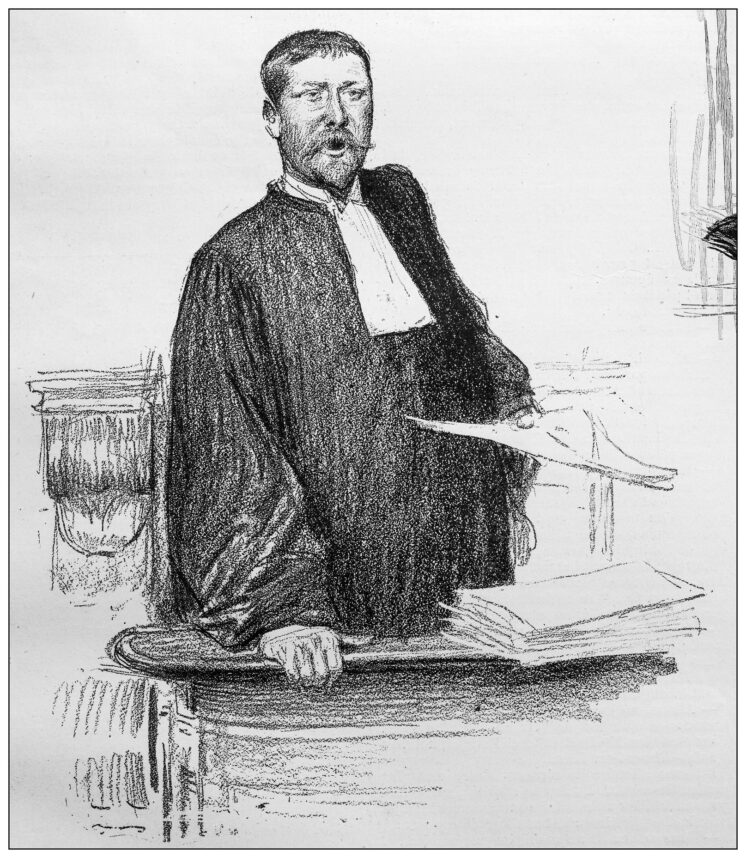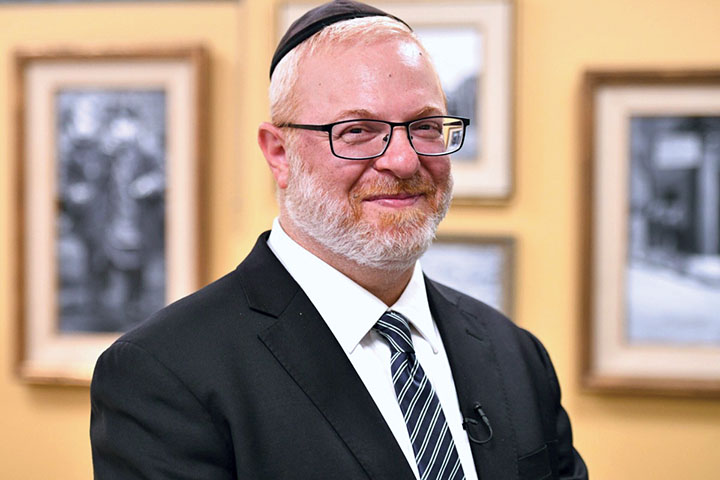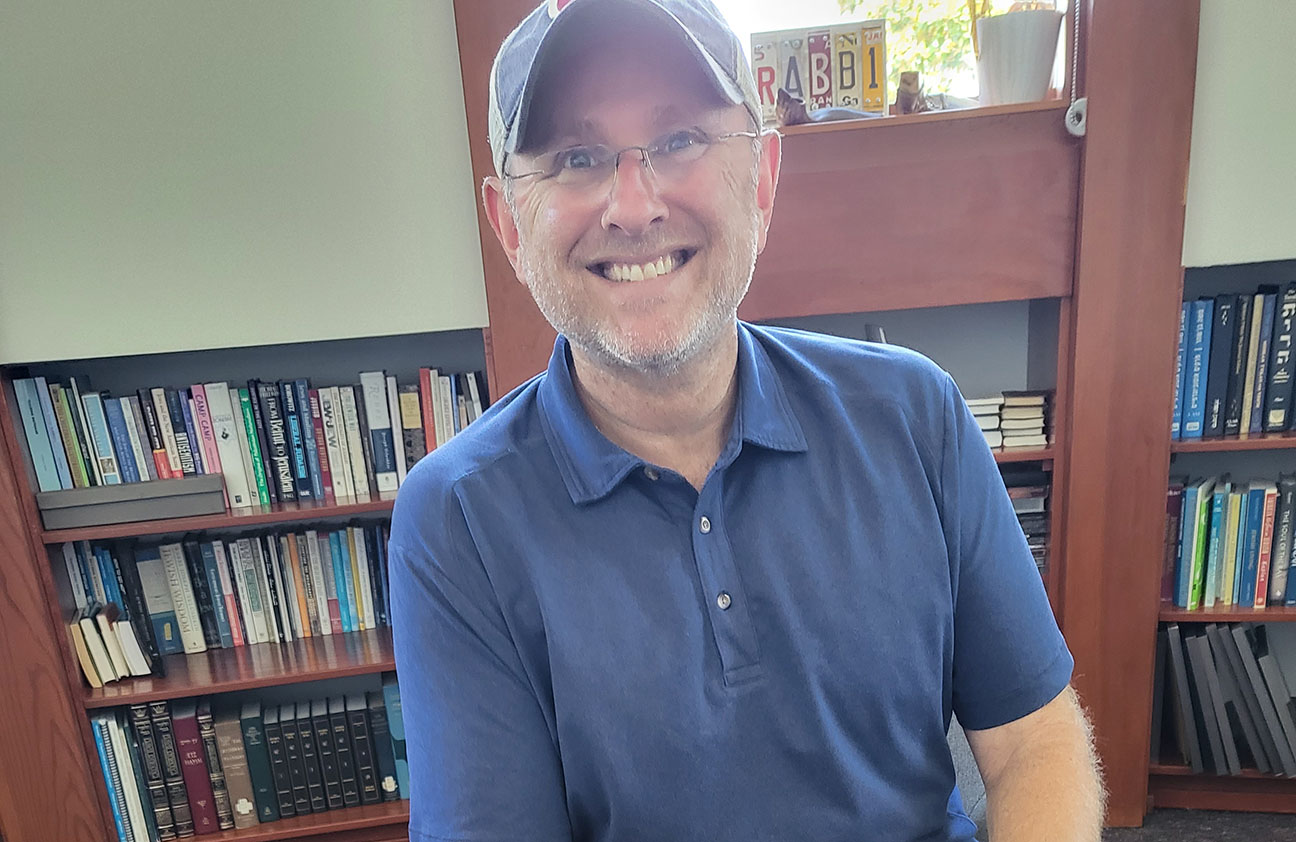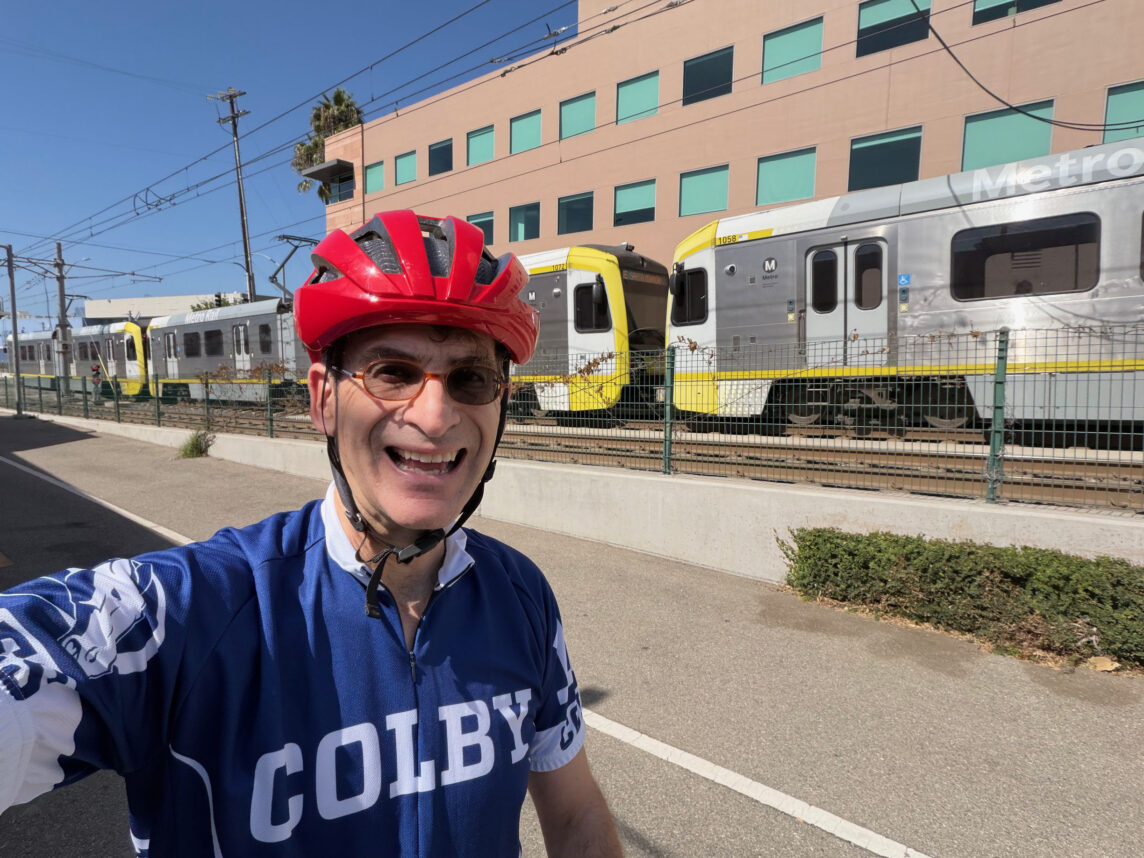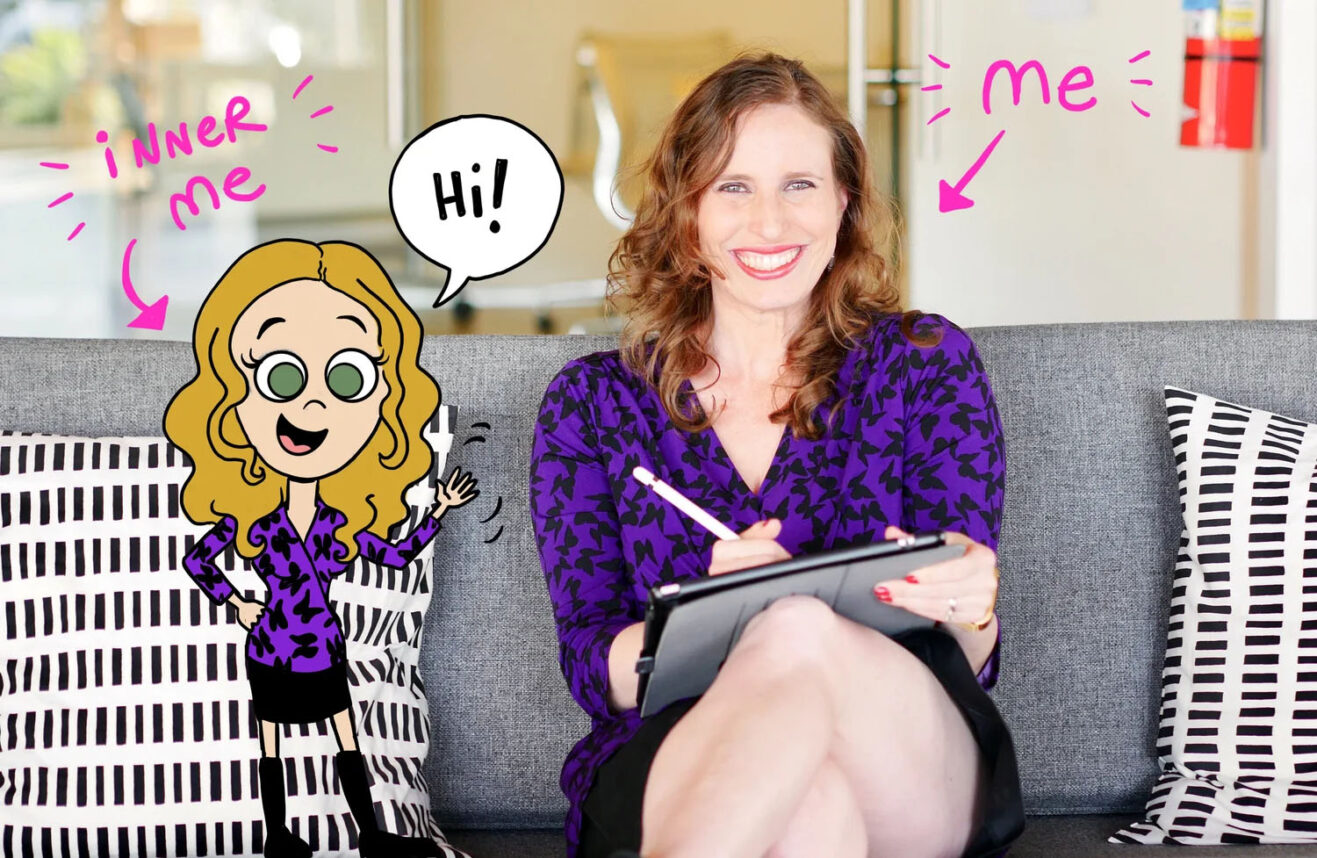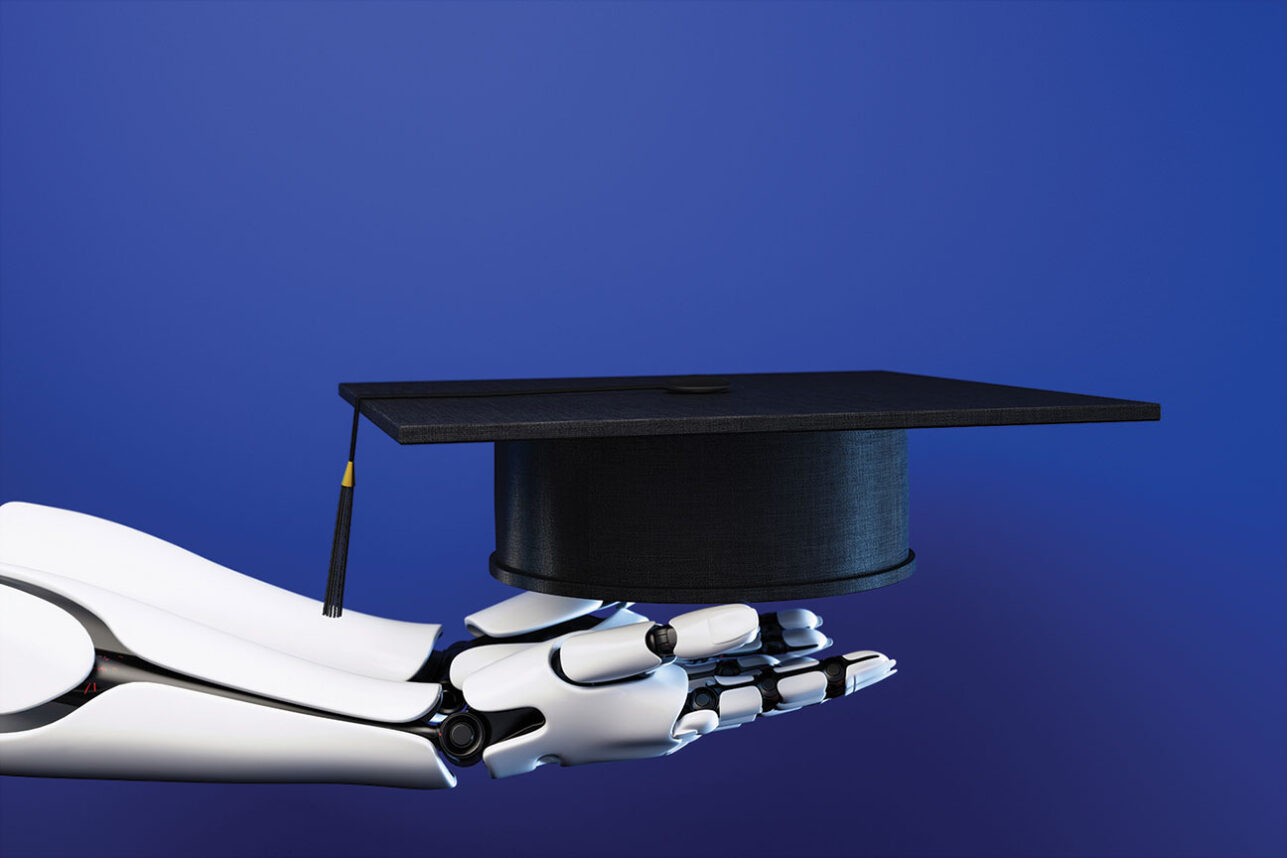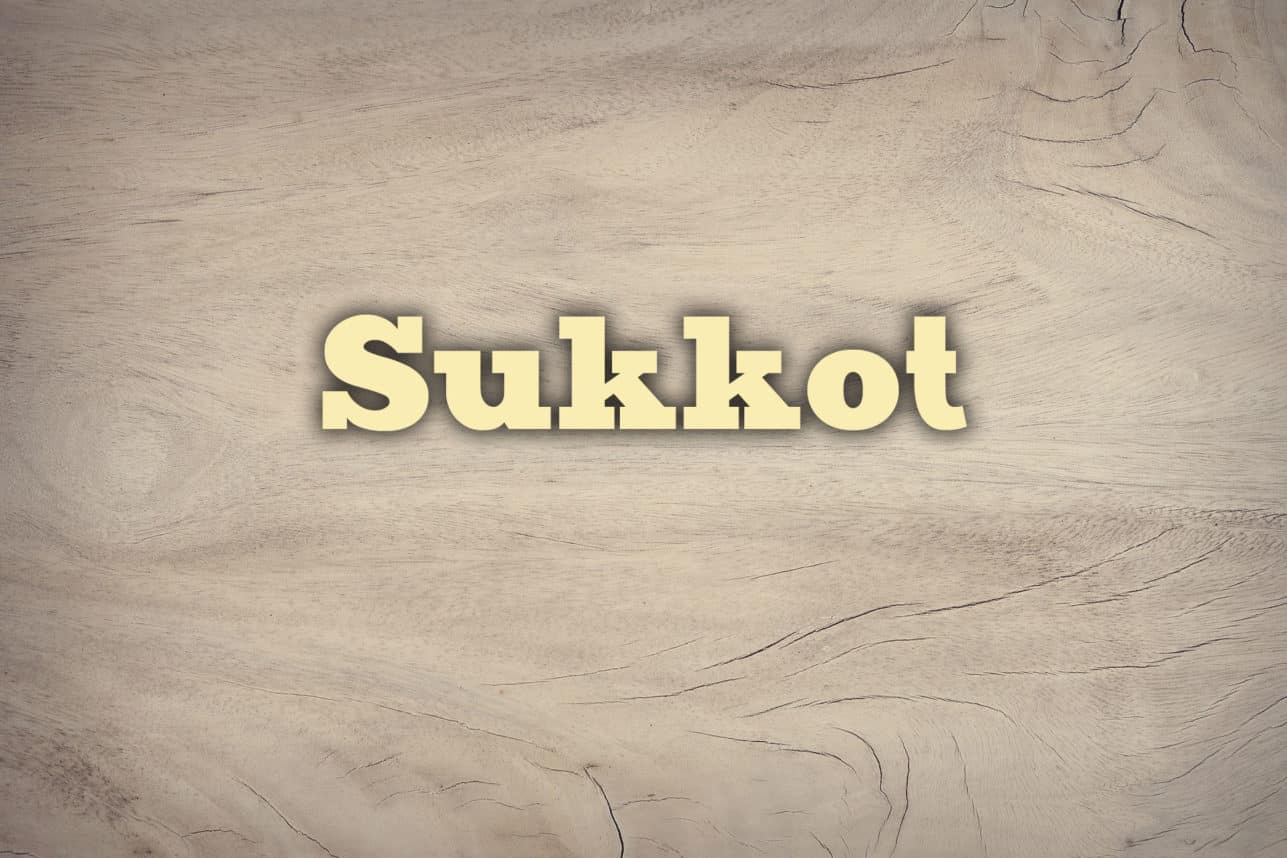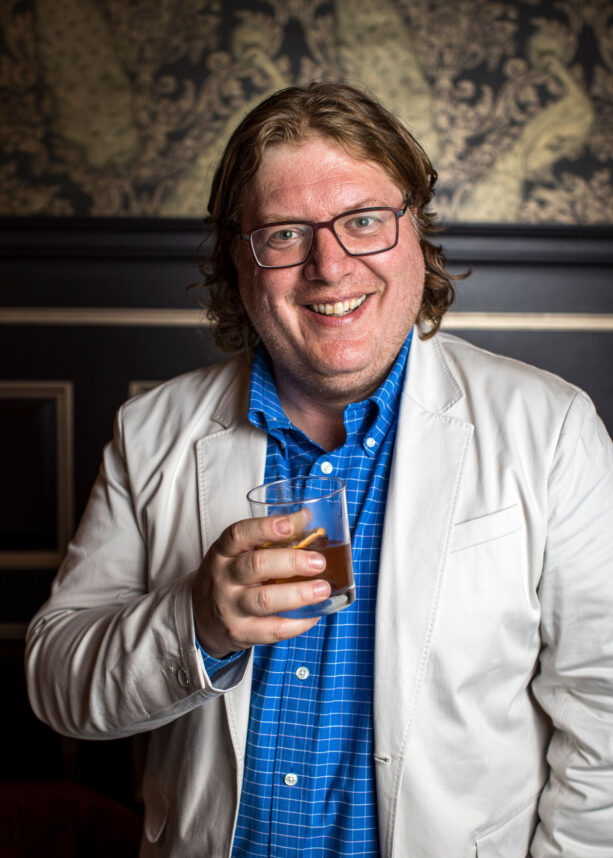
Fresh from serving Jewish Journal readers a deeply knowledgeable dose of ChatGPT and other strains from the artificial intelligence universe a week ago, Rabbi Yehuda Hausman demonstrates this time that he is capable of engineering a few surprises.
You might think that one so knowledgeably armed with the latest scientific discoveries would shun tradition.
That would be exactly wrong.
A dozen years after his ordination, the Los Angeles native was asked where he is in his journey. “When I close my eyes and think about Judaism,” said Rabbi Hausman, “I see a Beit Midrash (Torah study hall) … It is neither a library, nor a classroom nor a synagogue. It is all of them together. There are books on the walls, commentaries piled on tables and chairs, and people discussing them.” Then, the rabbi/educator said, ”I open my eyes. I realize I have spent my entire day working on a computer.”
While Yehuda Martin Hausman calls himself a sci-fi rabbi who daydreams of keeping Shabbat on Mars, he can sound quite traditional. He says he chose the rabbinate as a career “because I wanted my professional and spiritual lives to align.”
For a while, Hausman acknowledges, his plan worked. “I had a few years where I taught rabbinic students at physical campuses,” at the Ziegler School of Rabbinic Studies at American Jewish University and at the Academy for Jewish Religion California. Once a week he would drive to Encino to participate in Valley Beth Shalom’s Melton Classes.
Reflecting years later, Hausman realizes more than ever the value of in-person learning. “Long before the pandemic, I would tell myself, ‘We are the People of the Book. There can be no Judaism without books. Jewish community means physical community.’”
And yet, he acknowledges the reality of the digital revolution. “COVID showed us that even communal prayer, song, weddings and funerals can take place in cyberspace,” said Rabbi Hausman. This revolution has made the rabbi, to borrow a popular phrase, “feel like a stranger in a strange land.”
“Campus rabbis are expected to be on Facebook,” Hausman notes. “Synagogue rabbis must give webinars, and they also need to be available through Zoom.”
It is not surprising, then, to hear him declare his ambivalence for these ultra-modern platforms. He is constantly threading the needle between the real and the virtual, trying to make the best of each.
“Many of my colleagues and my former students have seemed to adapt and succeed rather well,” he concedes.
“What concerns me, what keeps me up at night, is that we do not anticipate. We have no idea what is coming — until it arrives.”
“What concerns me,” said Hausman, “what keeps me up at night, is that we do not anticipate.
“We have no idea what is coming — until it arrives.”
Lately Hausman has taken a break from thinking about today’s technological disruptions. Instead, he has begun thinking about what will confront the Jewish communities 50 and 100 years from now. Speaking of that distant time, what intrigues Rabbi Hausman about artificial intelligence?
“Right now, everyone is asking the usual questions,” he says: “How can AI help us in healthcare, in criminal justice, in traffic co-ordination, in filmmaking? Or how can ChatGPT contribute to a religion such as Judaism?”
He speculates that decades from now, if society gets to a point where there is sentient AI, the question Hausman would pose is: “What religion would appeal to an artificial intelligence?”
Hausman asserts that, for him, there is one answer: Rabbinic Judaism.
He contends that computers follow their programming. They cannot sin. Therefore, they have no need of forgiveness or grace. Driving further down his logical freeway, Hausman asks: “Why would an AI want to meditate or pray? Or recite blessings over food it cannot eat? Therefore, for fulfillment, all it leaves are education and learning.
“Maybe,” he wishes wistfully, “it will be the AI’s who turn humanity back to books.”
The rabbi was asked if artificial intelligence is as central to his day-to-day life as it appears.
“In our house, we have Siri and Alexa,” Hausman said. “I see Google’s Waymo cars all over town, and tiny self-delivering (Wall-E) carts in Santa Monica and Hollywood. So, yes, AI is a big part of life.”
When asked his preferred teaching topics, the rabbi responded candidly: “Everything but Kabbalah and Computer Programming,” he said. “Both are equally esoteric.”
“Mark Twain said, don’t let your schooling interfere with your education. I have always taken that to heart.”
He identified four subjects – books, sci-fi, fantasy and poetry — as the most influential factors in his growing-up years. And, yes, one personality:
“Mark Twain said, don’t let your schooling interfere with your education. I have always taken that to heart.”
Fast Takes with Yehuda Hausman
Jewish Journal: Have you ever encountered conflicts with Traditional Judaism?
Hausman: Judaism is about preserving tradition, and every day the world changes faster.
JJ: If you could travel anywhere, where would you go?
Hausman: The future. Obviously.
JJ: What is your favorite Jewish food?
Hausman: Haroset.













